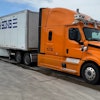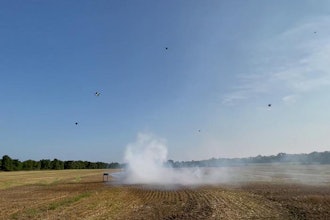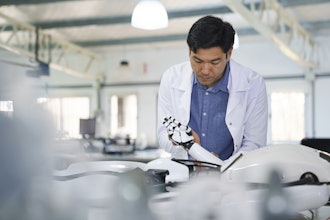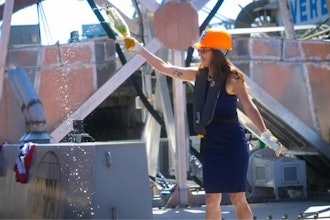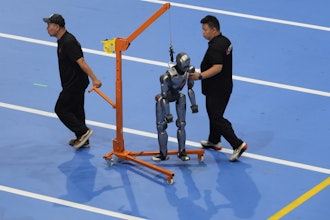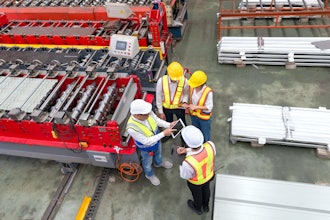The U.S. textile industry has taken a significant hit over the past two decades, and now American garment manufacturing, much like other repetitive, labor intensive industries, is all but absent.
While much of this industry has been offshored to countries with low wage rates like India, Bangladesh, Thailand or Vietnam, there’s another option that might solve a problem that’s vexed garment producers for years – how to use automation to produce goods that typically require the finesse of a human production worker.
According to Quartz.com, flexible knits used for producing products like t-shirts often need human hands to help guide seams as the product stretches. A company called SoftWear Automation is looking to solve that conundrum with LOWRY, a “sewbot” that uses machine vision to spot and adjust to distortions in fabric. Initially launched in 2015, LOWRY’s skill set was limited to basic products like bathmats but since then, it’s been developed to handle items as complex as jeans and t-shirts.
The enhancement in the labor component is significant – the robot, working under the guidance of a single human handler, is said to be able to make as many shirts per hour as about 17 humans. And the cost difference is astonishing: a denim shirt is said to cost $7.47 in labor to produce here in the U.S., while the automated equipment results in an expense of around 33 cents per garment – putting it on par with many low cost countries.
So while technology like LOWRY might make it feasible for garment manufacturers to produce here in the U.S., the number of jobs associated with their operations would be different and far fewer. Quartz says the Chinese company Tianyuan Garments has invested $20 million in an Arkansas plant, planned to open in 2018. But instead of being staffed by a traditional workforce, the factory will feature 21 robotic production lines supplied by SoftWear Automation, and will be capable of making 1.2 million t-shirts a year.

